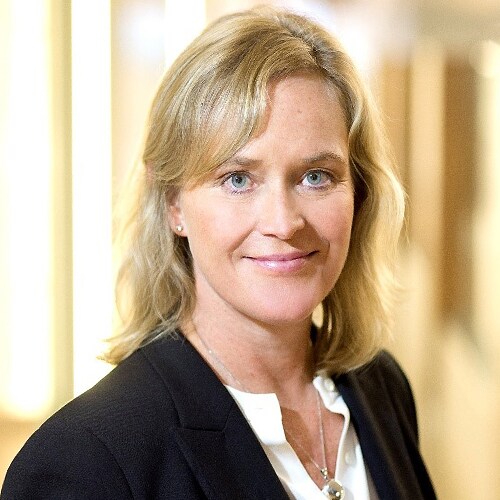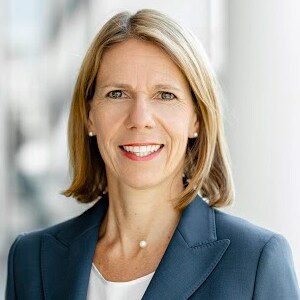Our community of
solvers
At PwC, we’re a diverse, global community of solvers who lead with the heart and live by our values.
At PwC, we’re a diverse, global community of solvers who lead with the heart and live by our values.
We’re a global network of nearly 328,000 professionals in 152 countries who together have an incredible array of skills and perspectives.
Diverse skills are needed to solve the complex challenges facing business and society, and that’s exactly what we offer. We unite experts in tax, law, finance, strategy, assurance, policy, infrastructure, data analytics, technology, and many other areas – enabling us to address the toughest challenges in unexpected ways. What’s more, we combine human expertise with cutting-edge technology to solve problems in ways that are human-led and tech-enabled.
In this chapter, we invite you to meet our vibrant community of solvers. We’ll show how we’re striving to grow, inspire, and enable a global community equipped to tackle the challenges of the 21st century, including how we’re:
80,061PwC people, Americas
128,374PwC people, Europe, Middle East and Africa
119,512PwC people, Asia Pac
Total 327,947 PwC people
+11% growth this year
| Label | Assurance | Advisory | Internal firm services | Tax and legal services |
|---|---|---|---|---|
| Total 327,947 people | 121746 | 105960 | 47990 | 52251 |
|
||||
| Label | Interns and trainees | Associates | Managers | Directors | Partners |
|---|---|---|---|---|---|
| Total 327,947 people | 19357 | 199660 | 75921 | 20307 | 12702 |
|
|||||
 Kazuho Fujine Manager, PwC Japan
Kazuho Fujine Manager, PwC JapanCross-disciplinary scientist with PhD
Now helps PwC clients develop new solutions through quantum technology
 Natalie KyriacouSenior Manager, PwC Australia
Natalie KyriacouSenior Manager, PwC AustraliaActivist for conservation and environmental and social issues
Now helps PwC clients develop more sustainable business practices
 Sonny NgataiSenior Associate, PwC New Zealand
Sonny NgataiSenior Associate, PwC New ZealandAdvocate for New Zealand indigenous people
Now helps PwC clients develop inclusive and trust-building solutions
 Crystal Kabajwara Director, PwC Africa
Crystal Kabajwara Director, PwC AfricaTax professional committed to the development of women and girls
Now an award-winning leader at PwC known for making a difference
 Sana CharaniaManager, PwC South Africa
Sana CharaniaManager, PwC South AfricaHIV and cardiovascular clinical researcher and PhD
Now a PwC management consultant helping futureproof healthcare systems
 Markus EkströmManager, PwC Sweden
Markus EkströmManager, PwC SwedenFormer intelligence officer
Now helps PwC clients build trust as a security consultant
 Sylvia ShiahSenior Manager, PwC Canada
Sylvia ShiahSenior Manager, PwC CanadaData scientist
Now helps PwC clients automate solutions and uncover valuable data
Despite the challenges of the ‘Great Resignation’ and the competition for talent, our net headcount across the network has grown to nearly 328,000 people - an increase of 11% (our normalised headcount growth was 14.6% excluding the impact of the Russian firm separation and the sale of our global mobility business). Because of the opportunities presented by The New Equation, we’ve hired more people this year than ever before. We welcomed more than 148,000 new hires over the last year including interns (up from 90,273 last year). We’re delighted that we continue to be a top choice for both experienced hires and new graduates.
We believe that our success in attracting great people has been helped by our strategy, The New Equation. Our recent survey of workers worldwide showed how much people care about having meaningful work that makes a difference. We’re delighted that so many talented people want to join PwC and help our clients build trust and deliver sustained outcomes. Our people help to make progress on the world’s important challenges, from supporting the successful functioning of economies to helping business and society do the right thing on ESG.
We’re proud of how our people feel about working at PwC.
We’re dedicated to continuing to expand our community of solvers. Last year we announced our intent to create 100,000 net new jobs in the next five years. We’re proud that we’re making good progress towards this goal. We’re focusing on building talent in areas critical to our clients’ sustained success such as climate and sustainability, value creation, cloud, data and analytics and cybersecurity.
Key to creating a diverse community of solvers is upskilling our people so they can find new and unexpected ways to solve problems.
Our New world. New skills. programme is a US$3 billion investment, launched in 2019 and continuing today, that helps to upskill PwC people worldwide. In addition, the programme helps millions of people across the world build the skills they need to succeed.
“We’re not saying everybody needs to be a data scientist. But we are saying that in order to survive in the future of work, you really need to understand the implications that technology has, and be able to work with technology.”

Many of our network firms are creating innovative programmes to help their people build skills. For example, PwC Australia held its inaugural PwC Academy Signature Experience Programme in May 2022. It’s a five-week immersive learning experience that aims to equip the firm’s senior associates and managers with the insights, perspectives and unique skills they’ll require to become the next generation of leaders. Over 2,700 PwC people attended.
Our annual average number of hours of training per employee has risen sharply this year as a result of hybrid learning, an increase in face-to-face training, and our commitment to upskilling as part of The New Equation. This increase holds true for PwC people across lines of service and management levels.
| Fiscal year | Average training hours per employee (global) |
|---|---|
| FY22 | 69.7 |
| FY21 | 56.3 |
| FY20 | 57.9 |
| FY19 | 52.3 |
In addition, our people are given time away from their daily roles to learn or teach. Beyond formal training, they also learn on the job, from coaching and through various other development activities.
This year, 39% of our people participated in learning courses on new topics outside their area of expertise. This reflects our people’s intellectual curiosity and the accessibility of learning opportunities at PwC that help our employees develop knowledge and skills beyond their primary roles. We offer a wealth of resources to help our people – whatever their grade or level of experience – develop personalised learning plans to equip them with the skills they need for today and tomorrow. Our learning programme covers a wide range of topics including technical training, human-centred design, inclusive leadership, AI and ESG.
ESG – in particular climate change – is a defining issue of the 21st century. ESG skills are increasingly like digital skills in that everyone needs a baseline understanding. We’re rapidly upskilling our network in this area, increasing our people’s baseline level of capability while expanding our pool of ESG specialists. We have established a global ESG Academy that offers a variety of training modules including a lecture series co-created with the NYU Stern Business school and a climate-focused activity developed in partnership with the Kite Climate School.
93,000+ People engaged
132 Country member firms participating
437,000 Modules completed
In addition, we’re developing ESG Centres of Excellence across our network to support our people to build ESG skills and deliver high-quality ESG work. See the ESG chapter to learn more.
We champion flexible work options to help our people work and live at their best.
PwC US were the first professional services firm in the US to offer all client service employees the option to work virtually and live anywhere in the country.
PwC Australia’s Together Anywhere initiative provides employees with the opportunity to work overseas for up to eight weeks and spend time with family and friends in other parts of the world.
PwC France implemented a Flexwork policy to foster hybrid working and enable people to relocate within the country.
PwC UK extended summer working hours from June to August, letting employees work condensed contractual hours so they can enjoy Friday afternoons off work.
PwC Japan provides “flexible life design leave” of up to two years for special purposes, such as family care or studying abroad, in addition to offering hybrid working to all employees under the "Design your workstyle" initiative.
Our member firms also provide enhanced wellbeing and mental health support. For example:
Although employees may feel they can express their wellbeing needs, we recognise that more needs to be done to help people achieve a healthy work-life balance. To make further progress, we must continue focusing on reimagining and evolving how we work. We must also adopt targeted actions and interventions when our people need them most.
The diversity of skills and perspectives in our community of solvers is key to our effectiveness. Our vision is to be recognised as a leading organisation for inclusion and belonging as well as a top employee destination for diverse talent. Below, we share some ways we’re seeking to enhance inclusion and diversity (I&D) at PwC. (To explore the many ways we’re helping clients foster inclusivity in their organisations, please see the People chapter.)
We’re creating enhanced accountability for I&D across our network as we build a stronger culture of inclusion:
| FY22 | FY21 | FY20 | FY19 | FY18 | |
|---|---|---|---|---|---|
| Global Board | 45% | 39% | 39% | 33% | 33% |
| Network Leadership Team | 0% | 0% | 0% | 0% | 0% |
| Global Leadership Team | 29% | 36% | 40% | 40% | 47% |
| Global Client Partners | 16% | 17% | 16% | 14% | 16% |
| Strategy Council | 10% | 5% | 0% | 0% | 0% |
| Partners | 23% | 22% | 22% | 21% | 20% |
| Internal Partner Admissions | 31% | 29% | 29% | 30% | 30% |
We’re on a journey to address these challenges by working towards proportionate promotions and hiring more experienced women which will help to create a strong pipeline of women for partner admissions and key leadership roles.To attract and retain more women recruits, and to increase representation of women at higher levels, we’ve implemented global and local recruitment aspirational targets, sponsorship programmes, retention programmes and increased leadership accountability. Some member firms have set aspirational goals for the proportion of female partner admissions to build accountability and encourage bolder action.
On International Women’s Day, we celebrated female climate leaders from across the PwC network to champion them as role models and share their perspectives on the importance of a sustainable and gender-equal future.
This year we also saw increased representation of women at the highest levels within the PwC network. For example, on 1 July 2022, the following appointments were made:

Petra became the first Chairwoman of the Management Board for PwC Germany and PwC Europe, as well as the first female member of the Network Leadership Team. Petra initiated the women@pwc mentorship programme and has received the ‘Mestemacher Female Manager of the Year’ award that honours extraordinary female leaders who serve as role models for other female professionals.

Anastacia was appointed as Governance Board Chair for PwC Africa. In a history-making moment for the Africa firm, Anastacia is the first female to be elected to this position by her peers and fellow partners.

Tracey was elected as the Australia firm’s Chair of the Board of Partners. As the first female appointed to this position, she plans to use her role as chair to promote pay equity and improve diversity results through a focus on metrics and associated accountability.

Agnes was appointed Chairwoman of the Executive Board and Territory Senior Partner at PwC Netherlands, joining a majority-female Board.
We have achieved at least 50% female representation in three of our four lines of service.
| Line of service | Women (%) | Men (%) |
|---|---|---|
| Advisory | 38.8% | 61.1% |
| Assurance | 51.2% | 48.7% |
| Internal Firm Services | 59.8% | 40.2% |
| Tax and Legal Services | 52.8% | 47.1% |
| Total | 48.7% | 51.2% |
Representation of women, particularly at the director and partner levels, remains lower in advisory, partly due to intense competition for this talent and a relatively low number of senior women leaders in this field. To improve the representation of women in advisory, some member firms are introducing initiatives to support a diverse range of candidates. For example, some firms require that all interviews include at least one woman candidate. Many member firms are also working with recruitment agencies that specialise in finding women and/or minorities to fill more senior advisory roles.
To explore the full gender breakdown of PwC people by line of service and management level, please see our WEF Stakeholder Capitalism Metrics Report.
We continue to focus on being an inclusive employer by developing policies and benefits to attract and retain female and diverse talent at all levels.
PwC Ireland launched policies to support people with fertility, pregnancy loss, menopause and domestic abuse. They also established a Families and Carers Group and extended paid parents leave from 5 to 7 weeks for all new parents (this is in addition to full maternity pay for women).
PwC US expanded parental leave for all parents from 8 to 12 weeks.
PwC Australia launched a First Nations Cultural Leave policy for Aboriginal and Torres Strait Islander employees, providing two days paid leave and up to an additional five days unpaid leave to help employees connect with their communities and maintain, develop and practise their culture.
PwC Middle East introduced a NextGen leadership shadowing programme which fosters cross-generational reverse-mentoring and includes a targeted women’s mentorship programme in Saudi Arabia.
PwC South Africa strengthened anti-harassment policy centred on zero tolerance across the board with an explicit focus on LGBT+, race and gender.
Over the past year, we developed our first network-wide Global Disability Inclusion Strategy. The strategy aims to promote disability inclusion both within PwC and beyond. The strategy builds alignment and consistency in our approach to disability inclusion across the network.
“The Global Disability Inclusion Strategy helps us in PwC Europe to focus on talent with all abilities and create a psychologically safe workplace so people can speak up about their personal needs. If disability is not on your agenda, neither is diversity.”

We’re a proud member of The Valuable 500, a global business collective of 500 companies promoting disability inclusion. We’ve joined the group’s public commitment to advancing inclusion. As part of our efforts, we appointed Leandro Camilo (PwC Brazil Partner and I&D Leader) as our Global Disability Leader in October 2021.
“PwC is a leading corporate actor in the growth in efforts globally to embed disability inclusion and accessibility across the business value chain. Their Global Disability Inclusion Strategy is a best-in-class framework and they provide one of the strongest examples of embedding global to local corporate culture within the Valuable 500.”

A number of member firms across our network have pledged to drive change on disability inclusion. For example, PwC Japan’s well-established ‘Athlete Programme’, now in its third evolution, enables national and international athletes with disabilities to follow two career paths: one focusing on sporting activities and one at PwC.
Shine is PwC’s LGBTQ+ community and ally inclusion network. Shine advocates, promotes and encourages wellbeing, inclusion and diversity for LGBTQ+ people, both at our firms and in the wider business world. It helps nurture local and global connections, encouraging everyone at PwC to be their authentic selves at work. Shine is now active in 29 member firms with four additional communities set up in FY22, including PwC Poland.
“Being part of an organisation that accepts people for who they are fills me with courage. I feel that I'm surrounded by people, by allies, which in turn gives me confidence.”

This year, PwC Netherlands reviewed and transformed its benefits offering to make sure it’s as inclusive as possible. PwC Netherlands extended parenthood leave to all types of families, expanded special birth leave for anyone bringing a newborn child into their family, and introduced 24 weeks of paid leave for people going through gender transition.
In line with our efforts to increase transparency across all areas of the PwC network, we’re reporting on representation of people from ethnic minority backgrounds in our workforce for the first time. In 2022, we’re providing data on ethnicity breakdown for those member firms of our 21 Strategy Council territories that collect ethnicity data and are not barred by local laws from gathering and sharing this information.
| Line of service | People from majority ethnic backgrounds (%) | People from minority ethnic backgrounds (%) |
|---|---|---|
| Advisory | 63.9% | 36.1% |
| Assurance | 60.5% | 39.5% |
| Internal Firm Services | 66.5% | 33.5% |
| Tax and Legal Services | 63.8% | 36.2% |
| Total | 63.3% | 36.7% |
We continue to focus on racial diversity and many firms have made public commitments to act against racism and injustice. PwC has taken action throughout this financial year to support people from a wide range of minority groups. For the full ethnicity breakdown by management level for each line of service, please see our WEF Stakeholder Capitalism Metrics Report.
At PwC, we believe that where you start out in life should not determine where you can go. That’s why we support programmes to enable people from lower socio-economic backgrounds to achieve their potential.
For example, PwC UK has a well-established social mobility community programme that helps students from lower socio-economic backgrounds, refugees and care leavers gain the skills to achieve positive employment outcomes in their career of choice, whether at PwC or elsewhere. In FY22 this programme reached over 10,000 people.
Since 2021, PwC Brazil has run Access Your Potential, a programme aimed at upskilling socially vulnerable young people aged 16-26 from across the country. Twice a year, 200 PwC employees mentor 200 young people over an eight-week period to help prepare the next generation to build rewarding and successful careers.
We view inclusive leadership as a fundamental human skill. It means showing empathy, appreciation and respect for every individual’s unique lived experience while fostering an environment of psychological safety in which everyone feels empowered to speak up. Inclusive leaders bring out the best in diverse teams to deliver impact and value.
In September 2021, we launched our Inclusive Mindset curriculum across the network to help our people practise inclusive behaviours and leadership skills. Many of our member firms have made this curriculum a core part of their firm-wide training. PwC Philippines included the programme as part of their 100-year anniversary celebrations, and PwC Portugal has made the programme compulsory for all employees.
“[The training] was an eye-opening and humbling experience. As part of the exercise, I paired up with a colleague who is very different from me. I learned a great deal about different types of micro-aggressions and micro-inclusions, and dug deeper into what it really means to come from privilege. Most of all, I realised how critical it is that I use my privilege to ensure equal opportunities for others. This requires a conscious effort on my part, each and every single day.”

91% Participants who agree this programme enhanced their ability to practise more inclusive behaviours in their day-to-day interactions
19,934 Number of engaged learners
83,651 Number of hours engaged in learning
93 Countries
In addition to our Inclusive Mindset curriculum, we offer a variety of learning content related to I&D. This financial year, 226,042 people across the PwC network completed one or more of these courses (up from 210,201 last year).
While improvements can still be made to reflect diversity at all levels, we’re proud that this year strong majorities of our people feel they belong at PwC and believe our leaders are working to foster an inclusive environment.
Our community of solvers extends well beyond the walls of PwC. We work collaboratively with a variety of organisations to combine our diverse perspectives and experiences to address key challenges facing our clients and the world at large. Throughout this Global Annual Review, we share many of the ways we are joining forces with partners to create sustained outcomes. Learn more about our commercial alliances here.
In the following chapters, we’ll show how our community of solvers is driving progress on some of the toughest issues facing business and society from business transformation to climate change.
Data methodology
The PwC headcount includes partners, regular employees, interns, and fixed-term employees. Contingent workers are excluded. Employees on leave (parental, disability, sabbatical, etc.) are included in the headcount. The headcount data from 30 June 2022 is the basis for the breakdowns of PwC people by region, line of service and management level; employee category by gender; and training hours. PwC hires includes partners, regular employees, interns, and fixed-term employees. Contingent workers are excluded. The employee turnover data includes the departures of regular employees only. It excludes all other worker types, including partners, interns, fixed-term employees and contingent workers. Ethnicity data includes a subset of our largest territories that track ethnicity data and are permitted by local regulations to share it. The subset includes approximately 50% of the PwC workforce in our largest 21 territories. Participating territories have mapped the majority/minority ethnicity composition of their workforces.

Sarah Brown
Director, Global Corporate Affairs and Communications, PwC United Kingdom
Tel: +44 7384 248 785
